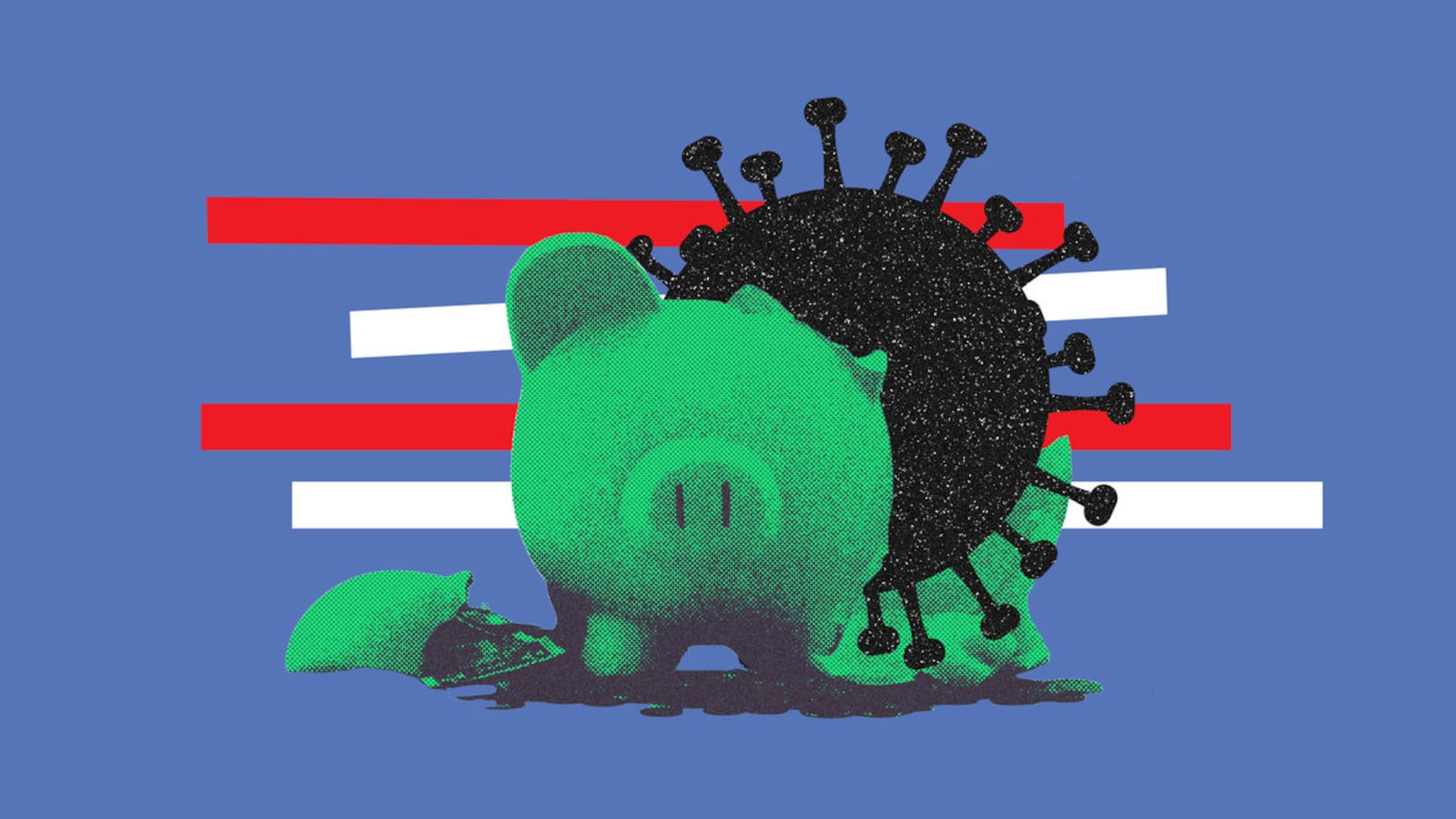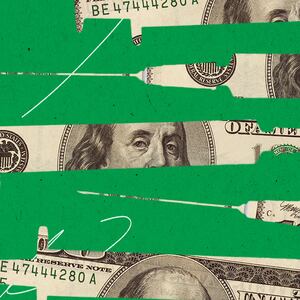Federal COVID funding is beginning to run out in the U.S. As the once extensive government investment in vaccines, therapies and testing vanishes, epidemiologists are bracing for a major shakeup in—some would say collapse of—critical efforts to contain the SARS-CoV-2 virus.
Vaccine initiatives could suffer the biggest blow. With the impending end of government funding, Americans would have to start paying for their own COVID shots—a disincentive that could further suppress the country’s middling vaccination uptake, currently plateaued at 67 percent “fully” vaccinated, usually with two doses of a messenger-RNA vaccine.
Another likely victim is COVAX, the international vaccine consortium that buys jabs for poorer countries. COVAX has been struggling even before the coming squeeze on U.S. funding. Now an existing shortfall in doses is set to get a lot worse.
Finally, an erosion of federal funding could delay or even kill off efforts to develop new, universal coronavirus vaccines that could work against current and future variants. Experts have pinned their hopes on universal jabs to help the population get ahead of a constantly evolving virus. Without that new vaccine, we’ll always be playing catch-up.
Politics are to blame for the coming cash crunch. “Congress is acting as if the COVID-19 pandemic is over, which is far from true,” Lawrence Gostin, a Georgetown University global health expert, told The Daily Beast.
Not every expert agrees there’s too little federal money in the pipeline. “In the short term, I think the resources the U.S. has put into public health responses to COVID-19 will hold up,” Eric Bortz, a University of Alaska-Anchorage epidemiologist, told The Daily Beast.
But it’s undeniable that the pipeline is narrowing—a lot.
In the first year of the pandemic, there was broad political consensus in Washington, D.C., that the federal government should foot most of the bill for the country’s response to the pandemic.
In 2020, a Republican Senate and a Democratic House of Representatives agreed to—and President Donald Trump, a Republican, signed off on—more than $2.5 trillion of spending to develop and produce vaccines and therapies, ramp up testing, prop up businesses, and keep individuals solvent as the economy temporarily shut down.
In early 2021, incoming President Joe Biden and narrow Democratic majorities in the Senate and House used a budgetary gimmick called “reconciliation” to quickly pass into law another $2 trillion in COVID-related spending. But Republican support was waning—and it’s not hard to see why. “Public health” and “vaccine” were becoming dirty words in the conspiratorial, anti-government Republican base.
After that initial reconciliation bill, the hardening of the Republican Party made it all but impossible for Biden to pass a big spending bill without relying on the once-a-year reconciliation. Most bills require 60 votes in the Senate, after all, and the Democrats have just 50 senators plus Vice President Kamala Harris as a tiebreaker.
When Biden finally did get his second reconciliation bill through Congress in August—the $750-billion Inflation Reduction Act—it mostly paid for health-insurance subsidies and efforts to address climate change. Biden and his allies in Congress spent the spring wheedling with Republicans for a modest $10-billion boost for vaccines, therapies, and testing.
“COVID-19 isn’t waiting on Congress to negotiate,” the White House stated in April. “Other countries will not wait. Time is of the essence. Congress must act urgently to help save more American lives and ensure we remain prepared.”
But the Republicans said no, and the bill died. The Biden administration hasn’t yet tried to revive the funding initiative—and, indeed, seems to have given up on ever doing so.
Ashish Jha, the White House’s COVID response coordinator, signaled Biden’s surrender on federal COVID funding in an online event sponsored by the U.S. Chamber of Commerce Foundation on Aug. 16. “One of the things we’ve spent a lot of time thinking about in the last many months… is getting us out of that acute emergency phase where the U.S. government is buying the vaccines, buying the treatments, buying the diagnostic tests,” Jha said.
Where before, anyone in the U.S. could get a COVID vaccine or booster and even test kits free of cost, thanks to government subsidies, soon they’ll have to pay for everything. “My hope is that in 2023, you’re going to see the commercialization of almost all of these products,” Jha explained.
The funding collapse will be most visible when people go to get vaccinated, boosted, or tested. In particular, Americans expect COVID jabs to be free. What happens when, all of a sudden, they cost $50 or $100?
Expect vaccine uptake to dip—and booster uptake to dip even more. “The Biden administration and the [U.S. Centers for Disease Control and Prevention] are having difficulty explaining the urgency of boosters,” Peter Hotez, an expert in vaccine development at Baylor College, told The Daily Beast. “Now if funding declines with it, this will only add to the problem.”
The looming end of federal COVID funding will also affect important, long-term programs that aren’t as visible to the general public.
For one, there’s a good chance the U.S. contribution to COVAX—already inadequate, according to some experts—is going to slip even further. COVAX, a consortium of the World Health Organization, the United Nations Children's Fund and a pair of epidemiological foundations including Gavi, formed in April 2020. Its goal: to distribute 2 billion doses of COVID vaccine by the end of 2021.
It fell short by nearly a billion doses. Manufacturing issues were a factor, but so was funding. “We right now are basically out of money,” Seth Berkley, director of Gavi, said in January. The Biden administration had pledged $4 billion and also brokered private financing through a federally run investment agency.
The U.S. is COVAX’s biggest donor, but not its most generous. Both Germany and Japan have donated a greater share of their gross domestic product. And another big injection of American money looks unlikely as Republicans pull tight the purse strings.
That means fewer vaccines for poorer countries as the pandemic grinds toward its fourth year and vaccination rates in the poorest countries remain stubbornly low—14 percent in Nigeria, for example, compared to the global rate of 63 percent. Starving COVAX “will only enhance global inequities,” Gostin said.
A collapse in federal funding could also scramble ambitious efforts to develop universal vaccines that work against SARS-CoV-2 and every other major coronavirus, of which there are scores. A pan-COVID jab should offer robust protection against successive SARS-CoV-2 variants, potentially for years.
It’s an important project. “We are going to have to come up with long-term vaccine solutions that don’t necessitate chasing the latest variant,” James Lawler, an infectious disease expert at the University of Nebraska Medical Center, told The Daily Beast.
There are around a dozen major universal vaccines in development. The two leading efforts are at the Coalition for Epidemic Preparedness Innovations in Norway and the U.S. government’s National Institute of Allergy and Infectious Diseases. The latter obviously depends on federal funding. But so do several smaller efforts to invent a pan-COVID jab, including one at Duke University’s Human Vaccine Institute.
“Without government funding, research and development of new and improved vaccines and drugs could slow considerably,” Gostin said. Absent sustained federal investment, it might take years to deploy a universal vaccine. In the worst case, the developers at smaller labs might never finish their pan-COVID formulations.
COVID is expensive. In killing millions, disabling millions more, sidelining careers, wrecking businesses, and disrupting travel and trade, the pandemic has cost the world an incalculable sum of money.
A few trillion in U.S. government spending, spread out over years, arguably isn’t a lot of money, considering how much that spending has mitigated the worst outcomes as the novel-coronavirus rages around the world.
But even that modest investment in U.S. and global health is winding down as politics trumps epidemiology. It’s hard to argue that the collapse of federal COVID funding will undermine vaccine-uptake and complicate efforts to develop new vaccines. The only question is exactly how much Americans’ stingy new approach to public health will hurt them, and everyone else.








